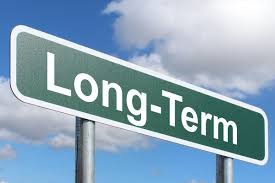The Real Cost of Living Paycheck to Paycheck
You’ve been told it’s normal. It’s just how things work.
“Live paycheck to paycheck. It’s fine. Everyone does it.”
But what if this whole system is broken?
What if the reason you feel stuck isn’t because you’re doing something wrong, but because the rules you’ve been taught aren’t designed to help you build wealth?
Living paycheck to paycheck isn’t just a personal failing. It’s a systemic flaw. And the real cost? It’s not just the stress or the empty bank account …it’s your freedom.
The Paycheck-to-Paycheck Trap
You’re told to work hard, save, and “live within your means.” Sounds good, right? But this is where the trap begins.
The conventional wisdom says you should just keep your head down, cut back on a few luxuries, and save a little more. But here’s the catch:
Saving alone won’t make you rich.
The moment you start thinking that saving money will help you escape the paycheck-to-paycheck grind, you’ve already lost.
Why? Because inflation is eroding the value of your savings, and the interest on your savings account won’t even keep up. You’re stuck in a rat race that’s designed to keep you exactly where you are.
The Cost of Complacency
What’s the real cost of living paycheck to paycheck? It’s not just the inconvenience.
It’s the financial opportunity you’re missing.
Every dollar you stash in a savings account is a dollar that could have been working for you. You’re watching your money sit there, growing at a measly 1% (if that), while inflation quietly eats away at it at 3%, 4%, or 5%.
You’re losing money by trying to save.
And yet, everyone tells you that saving is the path to financial security. But here’s the radical idea: Saving is not the solution—it’s part of the problem.
The Myth of “Financial Security”
Everyone’s told to chase financial security to build a nest egg, to stash away enough for retirement. But what if that’s the wrong approach?
What if financial security is a trap?
The conventional wisdom says you need a safe job with a steady paycheck, a savings account that grows over time, and a pension to rely on in retirement. But here’s the radical truth:
This model is outdated.
In a world where inflation keeps rising, the market constantly shifts, and tech is changing faster than ever, financial security isn’t about having enough money saved. It’s about being able to adapt and leverage opportunities.
The Radical Shift: Invest in Assets, Not Savings
So, what should you do instead?
Stop saving—start investing.
It’s that simple. But don’t just throw your money at any old stock. Start thinking radically:
- Invest in skills that make you more valuable, rather than parking money in a bank account that earns nothing.
- Invest in real estate that generates passive income, instead of relying on your paycheck.
- Invest in your own business or side hustle that allows you to control your income, rather than waiting for a promotion that may never come.
You want financial freedom? Stop thinking about savings accounts and start thinking about assets that can grow your wealth.
The Real Cost of Inaction
The cost of living paycheck to paycheck is not just the lack of savings. It’s the opportunity you miss when you don’t take action.
By staying stuck in this cycle, you’re trading away your future wealth for the illusion of security. You’re avoiding the discomfort of investing, whether that’s in stocks, real estate, or even starting your own venture.
This discomfort is exactly what leads to growth. The discomfort is where the opportunity lies.
You’re not just paying the price in lost opportunities, you’re paying it in missed potential.
Breaking the Cycle: A New Approach
- Challenge the norm: The first step is questioning everything you’ve been told about money and savings. The current rules aren’t working for you.
- Invest in yourself: Build skills that allow you to increase your earning potential. Invest in courses, books, and knowledge.
- Create wealth, don’t just save it: Use your money to buy assets, whether that’s real estate, stocks, or creating something that can generate passive income.
- Learn to leverage debt: Stop thinking of debt as “bad” and start using it strategically to create wealth. Good debt is debt that creates more money than it costs.
Take risks: Without risk, there’s no reward. Start taking calculated risks to build wealth instead of hiding behind the security of your paycheck.






